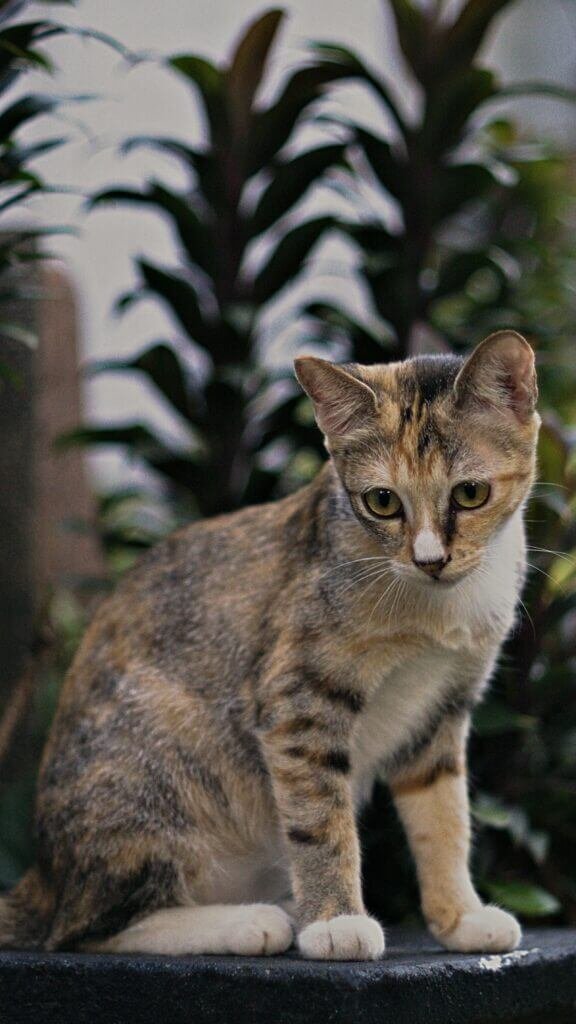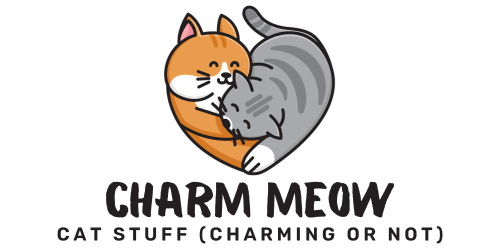Is your furry feline driving you up the wall with their constant meowing? Don’t worry, you’re not alone! Many cat owners find themselves wondering how to put a stop to this incessant noise. Whether it’s early in the morning, late at night, or simply whenever your cat feels like it, their excessive meowing can be frustrating to deal with. But fear not, because in this article, we will explore some practical tips and strategies to help you regain your sanity and find harmony in your home once again.
Understanding the Reasons Behind Excessive Meowing
Cats are known for their vocalizations, but when your furry friend starts meowing excessively, it can become quite a nuisance. To address this issue, it is important to understand the reasons behind excessive meowing. These can include medical conditions, attention-seeking behavior, hunger, stress or anxiety, and reproductive behavior.
Medical Conditions
Excessive meowing can sometimes be a sign of an underlying medical condition. Cats may meow excessively if they are in pain, uncomfortable, or experiencing discomfort due to an illness or injury. It is crucial to consult with a veterinarian to rule out any potential health issues.
Attention Seeking
Cats are social creatures and crave our attention. Excessive meowing could be your cat’s way of seeking attention from you. They may meow to get you to play with them, pet them, or simply acknowledge their presence. It is essential to provide your cat with regular attention and engage in interactive playtime to satisfy their need for companionship.
Hunger
If your cat’s meowing is accompanied by other signs of hunger, such as pacing, begging for food, or trying to steal your food, then it is likely that hunger is the cause of the excessive meowing. Establishing a consistent feeding schedule and providing high-quality cat food can help address this issue.
Stress or Anxiety
Cats can also meow excessively when they are stressed or anxious. Changes in their environment, such as moving to a new home, the arrival of a new pet or family member, or loud noises, can trigger this behavior. Providing environmental enrichment, safe spaces, and using calming products like Feliway can help alleviate stress and reduce excessive meowing.
Reproductive Behavior
Unspayed female cats can meow excessively when they are in heat, as it is their way of attracting a mate. Unneutered male cats can also exhibit excessive vocalization as they try to communicate their desire to reproduce. Spaying or neutering your cat can help reduce this behavior.
Establishing a Consistent Routine
A consistent routine is crucial for managing your cat’s meowing and overall behavior. By establishing regular feeding schedules, play and exercise times, and quiet time, you can provide your cat with a sense of structure and predictability, which can help reduce excessive meowing.
Feeding Schedule
Create a consistent feeding schedule for your cat, and stick to it as closely as possible. Cats thrive on routine, and knowing when to expect their meals can help alleviate their anxiety and reduce meowing associated with hunger. Divide their daily food portion into multiple small meals throughout the day to keep them satisfied.
Play and Exercise Time
Engaging in interactive playtime with your cat is essential for their physical and mental well-being. Dedicate time every day to play with your cat using toys and laser pointers. Providing them with opportunities to run, jump, and chase can tire them out and reduce their need to meow excessively.
Quiet Time
Just like humans, cats need some quiet and restful time to recharge. Designate a specific area in your home as a quiet space where your cat can retreat to when they need some alone time. This quiet time will provide them with a sense of security, reducing stress and excessive meowing.
Environmental Enrichment
Creating a stimulating environment for your cat can help prevent boredom and reduce meowing caused by attention-seeking behavior. Consider providing your cat with toys, scratching posts, climbing structures, window perches, and hiding spots. These enrichments can keep your cat mentally stimulated and engaged, diverting their attention from excessive vocalization.

Providing Proper Feeding and Basic Care
Meeting your cat’s basic needs is essential for their overall well-being and can help prevent excessive meowing. By ensuring they have regular feeding times, high-quality cat food, proper hydration, and a clean litter box, you can maintain their health and minimize their desire to meow excessively.
Regular Feeding Times
Stick to a consistent feeding schedule and avoid feeding your cat too many treats or table scraps between meals. Overfeeding can lead to obesity and associated health issues, which can contribute to excessive meowing.
High-Quality Cat Food
Provide your cat with a balanced and nutritious diet by feeding them high-quality cat food. Look for brands that offer complete and balanced meals, and consult with your veterinarian to determine the appropriate portion sizes for your cat’s weight and age.
Proper Hydration
Ensure your cat has access to fresh water at all times. Some cats prefer flowing water, so consider using a cat fountain to encourage them to drink more. Proper hydration is crucial for their overall health and can help prevent meowing caused by thirst.
Clean Litter Box
A dirty litter box can cause stress and discomfort for your cat, leading to excessive meowing. Scoop the litter box daily and change the litter regularly to keep it clean, odor-free, and appealing to your cat. Providing multiple litter boxes in different locations is also recommended, especially in multi-cat households.
Creating a Stimulating Environment
Cats are natural hunters and explorers, and a lack of stimulation can contribute to excessive meowing. By creating a stimulating environment, you can keep your cat entertained and divert their attention from excessive vocalization.
Toys and Interactive Play
Provide your cat with a variety of toys to play with, such as interactive toys, puzzle feeders, and catnip-filled toys. Rotate the toys regularly to keep them interesting and engage in interactive play sessions with your cat.
Scratching Posts and Climbing Structures
Cats have a natural instinct to scratch and climb. Providing them with appropriate scratching posts and climbing structures can help redirect their energy and fulfill their natural behaviors. This can help reduce stress and prevent excessive meowing caused by boredom.
Window Perches
Cats enjoy observing the world from a vantage point. Install a window perch or create a cozy spot near a window where your cat can watch birds, squirrels, or passersby. This visual stimulation can provide entertainment and prevent boredom-related meowing.
Hiding Spots
Cats also need their own space to retreat to when they feel overwhelmed or want some alone time. Create hiding spots by placing cozy beds, blankets, or cardboard boxes in quiet corners of your home. Your cat will appreciate having a safe and secure place to escape to, reducing stress-related meowing.
Positive Reinforcement and Behavioral Training
Positive reinforcement and behavioral training can help modify your cat’s excessive meowing. By rewarding calm behavior, ignoring excessive meowing, redirecting attention, and using clicker training, you can shape your cat’s behavior and reduce unwanted vocalization.
Rewarding Calm Behavior
Whenever your cat is quiet and calm, provide them with verbal praise, treats, or extra attention. Positive reinforcement teaches your cat that being quiet is rewarded, encouraging them to meow less frequently.
Ignoring Excessive Meowing
When your cat is meowing excessively, it is important not to reward this behavior with attention. Instead, ignore them until they calm down. Responding to excessive meowing can reinforce this behavior, causing it to continue.
Redirecting Attention
If your cat is meowing excessively due to attention-seeking behavior, redirect their attention to a more appropriate activity, such as interactive play or a puzzle feeder. Engaging their senses and providing mental stimulation can help curb excessive meowing.
Clicker Training
Clicker training is an effective way to teach your cat new behaviors and reinforce desired ones. By associating a clicking sound with a treat or praise, you can train your cat to perform specific actions or commands, helping to redirect their focus away from excessive meowing.
Addressing Stress and Anxiety
Stress and anxiety can contribute to excessive meowing. It is important to identify stress triggers, provide safe spaces, use calming products, and consult with a veterinarian if necessary.
Identifying Stress Triggers
Observe your cat’s behavior and surroundings to identify potential stress triggers. Common triggers include loud noises, changes in the environment, or the presence of unfamiliar people or animals. Once these triggers are identified, you can work towards minimizing their impact or gradually desensitizing your cat to them.
Providing Safe Spaces
Creating safe spaces where your cat can retreat to when they feel stressed or anxious is essential. These spaces can include cat beds, blankets, or even dedicated rooms where your cat can have privacy and solitude. Providing hiding spots and access to elevated areas can help your cat feel secure and reduce excessive meowing.
Using Feliway or Other Calming Products
Feliway is a synthetic pheromone that mimics the natural facial pheromone produced by cats. It can help create a sense of familiarity and comfort for your cat, reducing stress and associated excessive meowing. Other calming products, such as herbal supplements or diffusers, may also be beneficial.
Consulting with a Veterinarian
If your cat’s excessive meowing persists despite your efforts, it is advisable to consult with a veterinarian. They can rule out any underlying health issues and provide guidance on managing stress and anxiety. In some cases, medication or specialized treatments may be necessary to address excessive meowing caused by severe stress or anxiety.
Dealing with Attention-Seeking Behavior
Attention-seeking behavior can contribute to excessive meowing. To manage this behavior, it is important to set boundaries, engage in interactive play, use puzzle feeders or treat dispensers, and implement a training routine.
Setting Boundaries and Limits
Establish clear boundaries and limits for your cat’s behavior. For example, if your cat meows excessively for attention while you are working, create a designated quiet space where they can stay, ensuring they have toys, a bed, and water to keep them entertained and comfortable.
Engaging in Interactive Play
Devote time every day to engage in interactive play with your cat. This playtime can help release excess energy and prevent attention-seeking meowing. Use toys that require your cat to move and chase, such as feather wands or treat-dispensing toys.
Using Puzzle Feeders or Treat Dispensers
Instead of giving your cat their meals in a regular bowl, use puzzle feeders or treat dispensers to provide mental stimulation. These interactive feeders make mealtime more engaging and entertaining, diverting your cat’s attention from excessive meowing.
Implementing a Training Routine
Implementing a training routine can help redirect your cat’s attention and reinforce desired behaviors. Teach your cat basic commands, such as “sit” or “stay,” using positive reinforcement techniques. This can help create a bond between you and your cat while providing mental stimulation and reducing excessive meowing.
Dealing with Excessive Vocalization during Heat Cycles
Unspayed female cats can meow excessively when they are in heat, signaling their readiness to mate. Unneutered male cats may also exhibit excessive vocalization during this time. To address excessive vocalization during heat cycles, it is important to spay or neuter your cat, separate unneutered cats, and provide comfort and distractions.
Spaying or Neutering your Cat
Spaying or neutering your cat is the most effective way to prevent excessive vocalization during heat cycles. This procedure eliminates the hormonal fluctuations that cause these behaviors. Consult with your veterinarian to determine the appropriate time for spaying or neutering your cat.
Separating Unneutered Cats
If you have multiple unneutered cats in your household, consider separating them during their respective heat cycles. This will reduce the chances of excessive meowing and unwanted mating behaviors. Consult with your veterinarian for guidance on managing multiple unneutered cats.
Providing Comfort and Distractions
During your cat’s heat cycle, provide comfort and distractions to help reduce excessive meowing. Offer cozy spots, soft bedding, and plenty of toys to keep your cat occupied. This can help alleviate their frustration and divert their attention from vocalization.
Medical Evaluation and Intervention
If your cat’s excessive meowing persists or is accompanied by other concerning symptoms, it is important to seek medical evaluation and intervention. Your veterinarian can help diagnose and treat any underlying health issues that may be contributing to the excessive meowing.
Consulting with a Veterinarian
If you have tried various strategies to reduce your cat’s excessive meowing and there is no improvement, consult with a veterinarian. They will perform a thorough physical examination and may recommend further diagnostic tests to identify any underlying medical conditions.
Checking for Underlying Health Issues
Your veterinarian will check your cat’s overall health, looking for any signs of illness or discomfort. They may perform blood tests, imaging, or other diagnostic procedures to identify any underlying health issues that may be contributing to the excessive meowing.
Medications or Treatments
In some cases, medications or treatments may be necessary to address excessive meowing caused by medical conditions. Your veterinarian will determine the appropriate course of treatment, which may include pain management, anti-anxiety medications, or other interventions to alleviate your cat’s excessive vocalization.
Conclusion
Excessive meowing can be a nuisance, but with a comprehensive approach, it can be managed effectively. Understanding the reasons behind excessive meowing, establishing a consistent routine, providing proper feeding and basic care, creating a stimulating environment, using positive reinforcement and behavioral training, addressing stress and anxiety, dealing with attention-seeking behavior, managing excessive vocalization during heat cycles, and seeking medical evaluation and intervention when necessary are all important steps in reducing excessive meowing and improving your cat’s quality of life. Remember, a calm and content cat is a happy cat!


